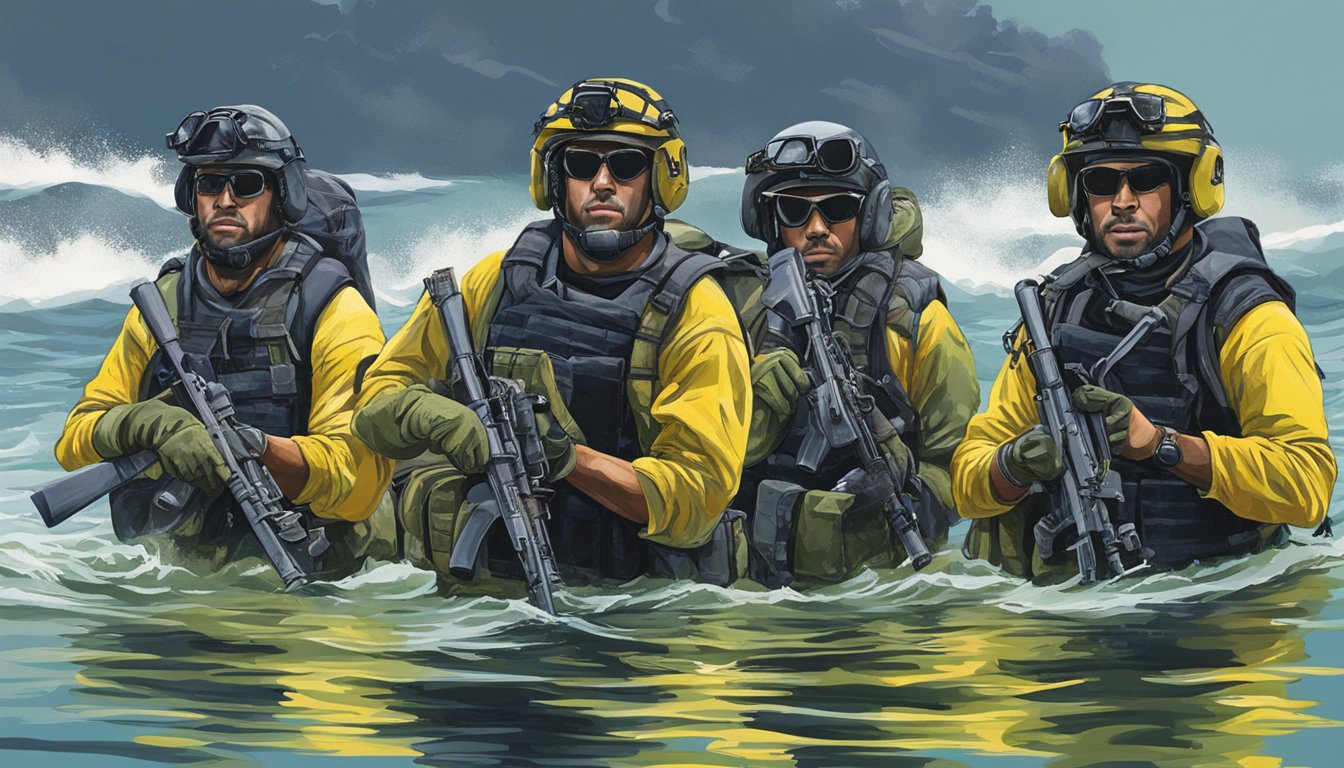A recent probe by the Defense Department Inspector General’s Office has unearthed a troubling practice involving Navy SEAL candidates at the Naval Amphibious Base Coronado in California.
Despite local beaches being closed due to hazardous levels of fecal indicator bacteria, these candidates regularly engaged in water training exercises.
This situation raises alarming public health concerns, as such bacteria signal possible fecal contamination.
Exposure Risks and Health Concerns
A management advisory from the DOD IG revealed that Navy SEAL candidates were exposed to contaminated waters largely due to the Naval Special Warfare Command’s failure to follow official beach closure notifications issued by San Diego County’s Beach and Bay Water Quality Program.
This lack of adherence not only jeopardized candidates’ health but also posed risks to the Navy’s training operations.
The DOD IG noted a startling figure: 1,168 cases of acute gastrointestinal illness among individuals training at NAB Coronado between January 2019 and May 2023 were identified.
Shockingly, a significant 39% of these cases emerged within just a week of exposure to waters containing excessive levels of fecal indicator bacteria.
Bacteria Levels and Training Oversight
The report also spotlighted concerning data concerning enterococcus bacteria, which serves as a marker for potential fecal contamination.
Testing conducted from February to September 2024 revealed that these bacteria surpassed state limits in 76% of samples taken from the beach north of NAB Coronado and in 75% from the southern beach.
In light of these findings, it is especially disconcerting that the Naval Special Warfare Command modified only 12 out of 265 planned water training exercises—an insignificant 5%—despite ongoing advisories about beach closures.
Notably, even during the demanding Hell Week of Basic Underwater Demolition/SEAL training, which took place from September 3 to September 8, 2023, three training events proceeded as scheduled in spite of the health risks associated with the high bacteria levels.
Recommendations and Response
This oversight meant Navy SEAL candidates faced increased chances of encountering contaminated ocean water during critical training exercises.
Currently, the Naval Special Warfare Command doesn’t conduct its own water quality assessments; instead, it relies solely on reports from the San Diego Beach and Bay Water Quality Program.
In light of these issues, the DOD IG urged the Naval Special Warfare Command to develop a monitoring policy that would allow for the quick relocation, rescheduling, or cancellation of training whenever water quality falls below state health standards.
Additionally, the command was advised to create clear protocols for communicating water quality results along with any changes to training schedules.
In response, the Naval Special Warfare Command has pledged to enact these recommendations by year-end.
However, the command’s leadership cautioned that, as a federal entity, it possesses the discretion to establish its own standard operating procedures, independent of strict state regulation.
They also indicated that an economic assessment would be necessary to evaluate the financial ramifications of adjusting training plans based on bacteria levels.
Emphasizing the paramount importance of candidate safety, the Naval Inspector General warned that canceling or relocating a large volume—up to 75%—of water training could present considerable logistical hurdles.
Nevertheless, representatives from the Naval Special Warfare Command reassured the public that they have access to multiple training sites monitored by well-trained instructors and safety personnel, ensuring safe training environments.
They maintain vigilant adherence to guidelines from San Diego’s Beach and Bay Water Quality Program, making adjustments to training as situations demand.
Ultimately, the command reiterated that safety remains their top priority, and they are consistently refining their processes to enhance both safety measures and operational readiness.
Source: Taskandpurpose

